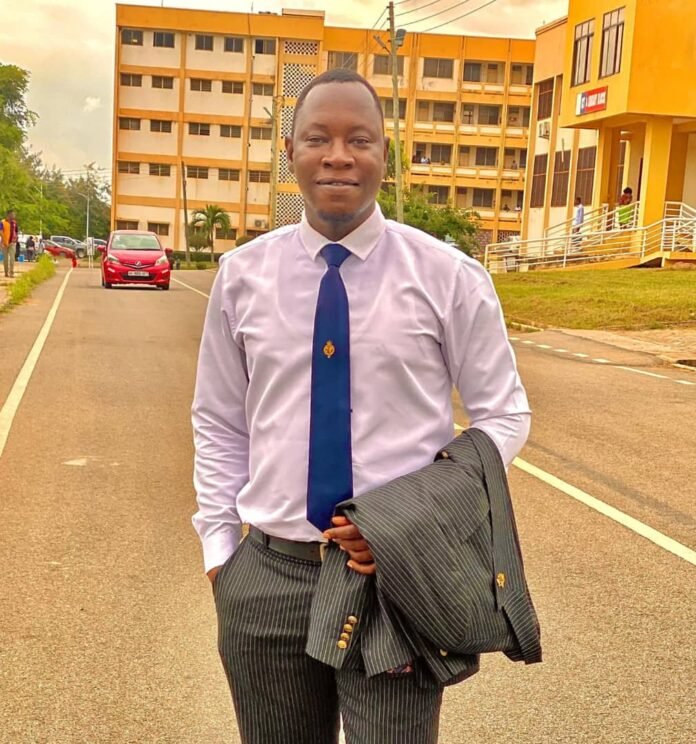By – Sir Hamza Apowda
(The Begger’s Voice)
0544402029
Ghana is on the brink, and gradually tiptoeing to the edge of a cliff. The country is collectively defying the dictates of Goal 6 of the SDG’sti ensure clean and portable water for all. Her rivers are being poisoned; forest cover has disappeared without notice; and our future is being mortgaged for quick-blood money.
The fight against galamsey menace is no longer a choice, it is about survival. And this must be national concern to all irrespective of our differences in political persuasions.
On August 6, 2025, a tragedy befell Ghana. We were thrown into a state of mourning. A military helicopter carrying senior government officials and some military men on duty to the launch of a government project dabbed, “Responsible Cooperative Mining and Skills Development Program.” Unfortunately, the aircraft crashed in the Ashanti Region, killing all eight on board. This was not just an accident, but a national warning that the galamsey crisis has reached a point where delay is no longer an option.
Galamsey is no longer the deep-pit mining neither is it the once upon a time sand-collection activity from used mining sites for further processing. What started as ordinary digging by villagers has now turned into highly destructive operations backed by powerful financiers in deep, protected forest zones and forbidden riverbeds.
Forests are being devoured at an alarming rate, rivers are poisoned with mercury, and farmlands are being wiped out. Rivers such as the Pra, Ankobra and some parts of the white volta lake, once the pride of our agricultural and ecological communities, are now unsafe for farming, drinking and survival of the wildlife. The health risks are just as serious as a genocide. Mercury exposure damages the brain and nerves, causing deformities in newly born babes, stagnant pits drown unsuspecting victims, and polluted water spreads deadly disease.
The economic cost to the state is unreasonably unbearable. Ghana loses billions of cedis each year through gold smuggling and unpaid taxes. Farmers see their harvests shrink or their lands seized. Even water treatment plants spend far more money just to treat water for domestic use. Galamsey may give short term gains to a few, but it is robbing the nation off its long term wealth and prosperity.
The danger is that this avoidable menace has fast turned into a security threat. Experts warn that extremist groups from the Sahel are eyeing Ghana’s gold trade as a source of funding. In places like Mali and Burkina Faso, these groups already use natural resources to finance insurgents and their activities. If galamsey proceeds fall into their hands, Ghana will not only make do with polluted rivers and destroyed farmlands, but also armed conflict funded on our soil with proceeds from our own natural resources.
Up until now, the state’s response has not measured up. Task forces such as “Operation Vanguard” gave temporary relief but failed to stop the financiers and political actors behind illegal mining from even getting worse in their illegalities. “Community mining” project was poorly supervised and the outcomes are the repeated the mistakes just as galamsey. Alternative livelihood programmes, though well-intentioned, could not compete with the quick profits of mining because they lacked steady markets and reliable income.
His Excellency John Dramani Mahama and his cabinet ought to, as a matter of urgency:
1) Restore trust in enforcement; the fight must target not only those in the pits but also the big men and women who finance this illegality.
2) Repeal L.I. 2462; this regulation, which allows mining in rivers and forest reserves under certain conditions, undermines the government’s own campaign. Its repeal will send a strong signal that no mining is acceptable in such protected areas.
3) Protect the environment with real safeguards; establish strict buffer zones around rivers, demand reclamation bonds from miners, and phase out mercury completely.
4) Provide workable alternatives program; skills training must be linked to guaranteed markets, irrigation projects and food security plans so that young people can earn a steady living without turning back to galamsey.
Above all, the President and the government must be firm and ruthless in this fight. Words and diplomacy will not solve the crisis. The networks that profit from illegal mining must be broken. Transparency must guide every step, with monthly publication of data on prosecutions, illegal sites, and water quality so citizens can see real progress.
In the end, galamsey is no longer just an environmental or economic issue, it is now a question of Ghana’s sovereignty, survival, and security. The August 6 tragedy should not fade into another round of empty speeches. It must be remembered as the point when Ghana chose to act
The most befitting tribute to the lives lost is not ceremonial mourning but decisive reforms, firm enforcement, open accountability, and the immediate repeal of L.I. 2462. Anything less would betray their sacrifice and endanger Ghana’s future.




